Photographs: Reuters
There are 41 candidates in the presidential race, including the incumbent, Hamid Karzai.
On Tuesday, a suicide bomber killed at least 10 people in an attack on a convoy of western troops in Kabul. Hours after the attack, the government banned the media from reporting suicide bombings and other violence during the election.
Tough road ahead for the Afghan people
Image: A donkey carries poll-related material in Afghanistan.Photographs: Reuters
Seventeen million of Afghanistan's 30 million people are registered to vote. The minimum voting age is 18.
More than 3,000 donkeys have been being mobilised to carry election-related material to far flung areas in a country that has been ravaged by unending violence for 30 years.
The man who could surprise Karzai
Image: Dr Abdullah Abdullah, Karzai's main rivalPhotographs: Reuters
One of his main rivals this election is his former foreign minister, Dr Abdullah Abdullah.
An eye surgeon trained in India, Dr Abdullah was a close associate of Ahmed Shah Masoud, the legendary Afghan rebel leader who was killed by Al Qaeda assassins two days before 9/11. He represents the United National Front Opposition alliance.
Dr Abdullah says he is open to negotiation with the Taliban and indeed with militants willing to lay down their arms.
America's preferred nominee
Image: Ashraf Ghani AhmadzaiPhotographs: Reuters
Washington has fallen out of love with Karzai who they see as ineffective.
Policy makers in both the Bush and Obama administrations are impatient with Karzai's mollycoddling of Afghan warlords, his inability to crack down on the drug trade which finances the Taliban.
Ghani played a key role in the reconstruction of Afghanistan, primarily as special adviser to the then United Nations special envoy to Afghanistan, Lakhdar Brahimi.
Before becoming chancellor of Kabul University he was Afghanistan's finance minister between 2002 and 2004, before he too fell out with Karzai.
The Maverick
Image: Ramazan BashardostPhotographs: Reuters
Once a minister in Karzai's government, the France educated politician lives in a tent during the summer and with his parents, who reportedly disapprove of his almost monastic ways, during the harsh Afghan winter.
Will the Afghans elect a lady president?
Image: A scene from the campaign in Kabul.Photographs: Reuters
The Taliban has urged Afghans to boycott the election, saying the outcome has already been decided by the United States.
A New York Times report said the possibility of large-scale non-participation by the Pashtuns -- the dominant ethnic community in Afghanistan, from which Karzai hails and which dominates the Taliban -- will cast a cloud over the election.

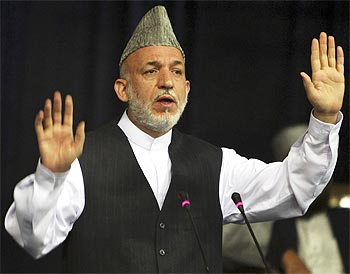
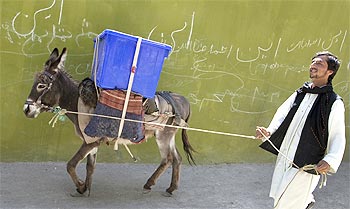
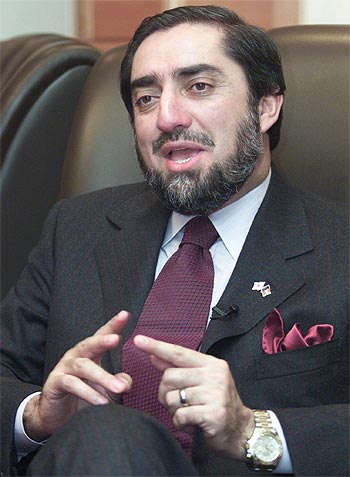
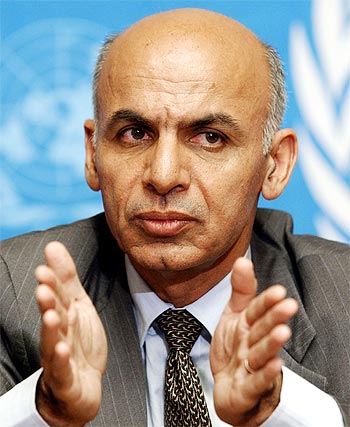
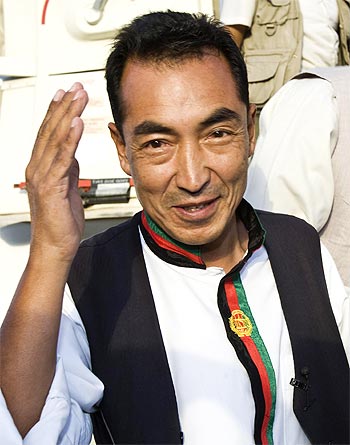
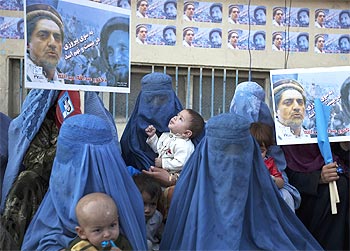
article